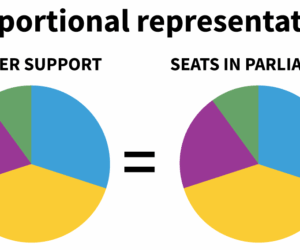The claim by Jama’at Nusrat al-Islam wal-Muslimeen (JNIM) of its inaugural attack in Nigeria on October 31, 2025, has cast a pall over the nation’s security horizon, raising profound questions about the inexorable spread of jihadist ideologies. JNIM, a potent Al-Qaeda affiliate, announced the killing of at least one Nigerian soldier in an ambush near the Benin border, a manoeuvre that heralds the group’s audacious push beyond its Sahel bastions into West Africa’s southern flanks. This incursion arrives at a moment of heightened fragility in Nigeria, where narratives of religious violence often obscure the broader ideological war waged by extremists against the state and its people. As JNIM’s Al-Qaeda lineage becomes increasingly evident in its tactics and ambitions, this editorial delves deeply into the group’s origins, its operational symbiosis with the global jihadist network, and the existential threats it poses to Nigeria’s sovereignty. What binds JNIM so inextricably to Al-Qaeda’s transnational vision? How does this alliance exploit Nigeria’s fissures? And what reflective lessons must the nation draw to fortify its defences? To answer these, we must delineate the connection with unflinching clarity, urging enhanced border security as the linchpin of a renewed counterterrorism doctrine.
JNIM’s genesis is inseparable from Al-Qaeda’s strategic recalibration in the Sahel, a fusion of ambition and pragmatism forged in the fires of regional instability. Established in March 2017, JNIM emerged as an umbrella coalition uniting several Al-Qaeda-aligned factions, including Ansar Dine (led by Iyad Ag Ghaly, a Tuareg separatist turned jihadist), Al-Mourabitoun(formerly the Movement for Oneness and Jihad in West Africa), and the Macina Liberation Front. This merger was not mere convenience but a deliberate consolidation under Al-Qaeda in the Islamic Maghreb (AQIM), Al-Qaeda’s North African arm, which has long sought to extend its caliphate-like influence southward. The United Nations Security Council designates JNIM as the “official branch of Al-Qaida in Mali”, underscoring its formal allegiance to Ayman al-Zawahiri’s (and now Saif al-Adel’s) global command structure. Al-Qaeda’s endorsement, conveyed through AQIM’s media channels, affirmed JNIM’s role in “defending Muslim lands” through coordinated operations, sharing intelligence, and ideological indoctrination. This connection is not superficial; it manifests in JNIM’s adoption of Al-Qaeda’s Salafi-jihadist playbook—targeting “apostate” regimes, Western interests, and rival Islamists like the Islamic State—while adapting to local grievances such as Tuareg marginalisation and Sahelian poverty.
The October 31 ambush exemplifies this Al-Qaeda-infused operational sophistication, blending global tactics with regional cunning. JNIM’s al-Zallaqa Media Foundation proclaimed a “successful ambush” on a Nigerian military patrol near the Benin border, employing improvised explosive devices (IEDs) and small arms fire to claim at least one soldier’s death. Discrepancies in reporting—AFP cited 27 soldiers killed in a Northeast suicide attack on the same day—suggest either exaggeration for propaganda or a separate strike, but the border locus is telling. This aligns with JNIM’s pattern of probing weak frontiers; in July 2025, it claimed 54 attacks in Burkina Faso, 36 in Mali, and seven in Niger, including a daring assault on a Burkina Faso border post near Markoye. The group’s use of drones for reconnaissance, as analysed in a July 2025 Policy Center for the New South report, enables precise, low-cost strikes reminiscent of Al-Qaeda’s Afghan training manuals. Al-Qaeda’s ideological tether is evident in JNIM’s rhetoric, echoing bin Laden’s calls for “jihad in the land of the two rivers” but localised to “liberate the Sahel from crusaders and apostates”. This delineation is reflective: JNIM is not an autonomous actor but a node in Al-Qaeda’s decentralised network, where local autonomy serves global aims, funding operations through taxes in controlled territories and kidnappings yielding millions.
Strategically, JNIM’s Nigerian foray interrogates the porous underbelly of West African security, where Al-Qaeda’s long game exploits borders as bridges rather than barriers. The Benin-Nigeria frontier, a 800-kilometre stretch riddled with smuggling routes for arms and narcotics, offers JNIM an ideal gateway. A 2025 UNODC report estimates 70 per cent of illicit arms in Nigeria enter via such corridors, empowering extremists with AK-47s and RPGs. Poverty, afflicting 63 per cent of Northern Nigerians per World Bank data, creates fertile soil for recruitment, mirroring Al-Qaeda’s playbook in Yemen and Somalia. This convergence with local actors like Boko Haram or ISWAP is alarming; analysts from the Africa Centerfor Strategic Studies posit that JNIM’s Al-Qaeda ties could forge alliances, merging Sahel logistics with Lake Chad Basin manpower for hybrid threats. Reflective questions pierce the veil: How have Nigeria’s governance lapses—underfunded intelligence and corruption in border posts—invited this breach? And in a nation riven by skewed narratives of religious violence, does JNIM’s Salafi purism risk igniting interfaith conflagrations, as seen in Mali’s 2025 sieges where civilians of all faiths suffered?
For Northern states like Borno and Yobe, the ramifications are existential, demanding a reflective reckoning with counterterrorism’s shortcomings. Borno, scarred by Boko Haram’s 15-year rampage, now faces a multi-front jihadist assault; JNIM’s border probe could link with ISWAP remnants, stretching Operation Hadin Kai thin. Yobe’s 1.2 million IDPs, per UN OCHA, inhabit ungoverned spaces ripe for JNIM’s “hearts and minds” campaigns, where Al-Qaeda’s propaganda preaches anti-Western jihadism to disenfranchised youth. Governance lapses compound the peril: delayed military responses, with airstrikes on October 31 targeting suspected hideouts but yielding scant details, erode community confidence. Social media in Kaduna and Kano buzzes with alarm, users pleading for border patrols amid fears of “Sahel spillover”. This interrogates deeper: Why do trust deficits persist, with civilians viewing the state as complicit in neglect? In a land where poverty and climate stress already breed radicalisation, JNIM’s Al-Qaeda-backed narrative of “liberation” could metastasise, exacerbating interfaith rifts amid U.S. “genocide” rhetoric that ignores the group’s indiscriminate brutality against Muslims.
To counter this nexus, Nigeria must fortify borders with unwavering resolve, blending technology, diplomacy, and community resilience. Deploy AI surveillance and drones along the Benin-Niger frontier, emulating Sokoto’s pilots that boosted detection by 30 per cent. Bolster ECOWAS protocols for joint patrols, curbing Sahel inflows where 60 per cent of arms originate. Domestically, allocate reasonable funds in 2026 for the National Centre for Control of Small Arms, enhancing inter-agency coordination to preemptinfiltration. Community programmes in Borno—vocational training for at-risk youth and interfaith dialogues to dismantle Al-Qaeda’s propaganda—offer a proactive shield. Experts from Crisis Group advocate amnesty for surrendering foot soldiers, mirroring Mali’s 2024 collection of 5,000 arms, while public sentiments demand harsher penalties for enablers.
In conclusion, JNIM’s Al-Qaeda tether renders its Nigerian debut a harbinger of hybrid horrors, demanding introspection on our fractured defences. By delineating this alliance’s perils and acting decisively, Nigeria can reclaim its borders and unity, transforming threat into resilience.








